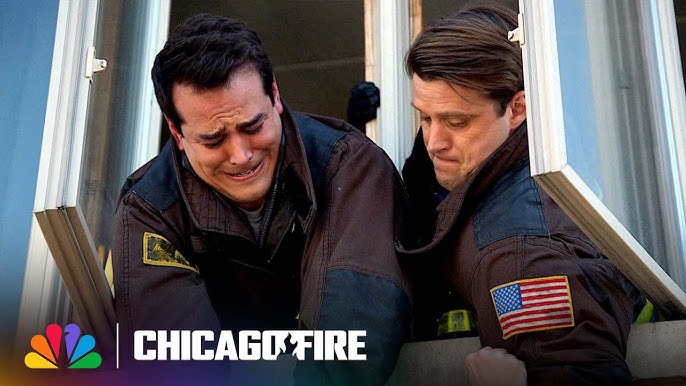In Chicago Fire Season 13, Episode 12, titled “Relief Cut,” the team at Firehouse 51 is back to its usual routine following the intense events of the One Chicago crossover event
. The episode opens with Herrmann (David Eigenberg) updating his colleagues about Mouch (Christian Stolte) and Trudy’s (Amy Morton) recovery after Trudy’s near-death experience.
This brief moment of calm, however, is short-lived as an emergency call pulls the team back into action. The call is in response to a car accident where an elderly woman is trapped
in her vehicle, which is quickly engulfed in flames. While the team works to free the woman, Herrmann and Kylie Estevez (Katelynn Shennett) discover that the nearest fire hydrant is missing, forcing them to drag hoses to a hydrant 300 feet away. When the fire is finally put out, Herrmann’s frustration grows as he learns that stolen fire hydrants are being sold for scrap metal across the city.

Determined to stop the thefts, Herrmann and Estevez devise a plan to install a tracking device in a new hydrant and catch the criminals in the act. Sure enough, the hydrant is stolen and brought to a scrapyard, where it’s repainted and ready to be sold. They track it to a scrapyard owned by Eddie (Brian Keane), a seemingly upstanding citizen, who initially denies any involvement. But when the tracker leads them straight to the stolen hydrant, Herrmann and Chief Dom Pascal (Dermot Mulroney) confront Eddie, with Herrmann delivering a powerful warning to him about the city’s new tracking system (which, in reality, doesn’t exist—but the criminals don’t need to know that).
With the thieves caught, the missing hydrants aren’t replaced, but Herrmann’s resolve to fix the issue continues. The following evening, at a fundraiser with the new city treasurer (Ryan Hall), Herrmann seizes the opportunity to address the hydrant crisis directly. He approaches the treasurer and, with a fire hose in hand, explains how missing hydrants hinder the fire department’s ability to fight fires. He points out that while the missing hydrants may seem insignificant in the grand scheme of the 47,000 hydrants across the city, those missing hydrants could be the ones outside a home or school, making all the difference in an emergency.
Herrmann’s passionate plea for action is met with a request for the cost of replacing the hydrants, to which Herrmann responds, “Well, I’m not a numbers guy like you. But every hydrant we replace could save a life. So you tell me. What’s the price of that?” His words leave a lasting impact, proving that he’s not just a firefighter but a leader who will fight for his team and his community.
This moment is a turning point for Herrmann, who has struggled to fully embrace his role as captain. While he’s always been the heart of Firehouse 51, this episode showcases his growth into a true leader. Herrmann finally understands that being captain isn’t about stepping away from the frontlines—it’s about using his position to fight for the resources his crew needs to do their jobs effectively. In “Relief Cut,” Herrmann proves once again that he’s the emotional core of Chicago Fire, using his wit, passion, and determination to push for change and protect those he cares about.





